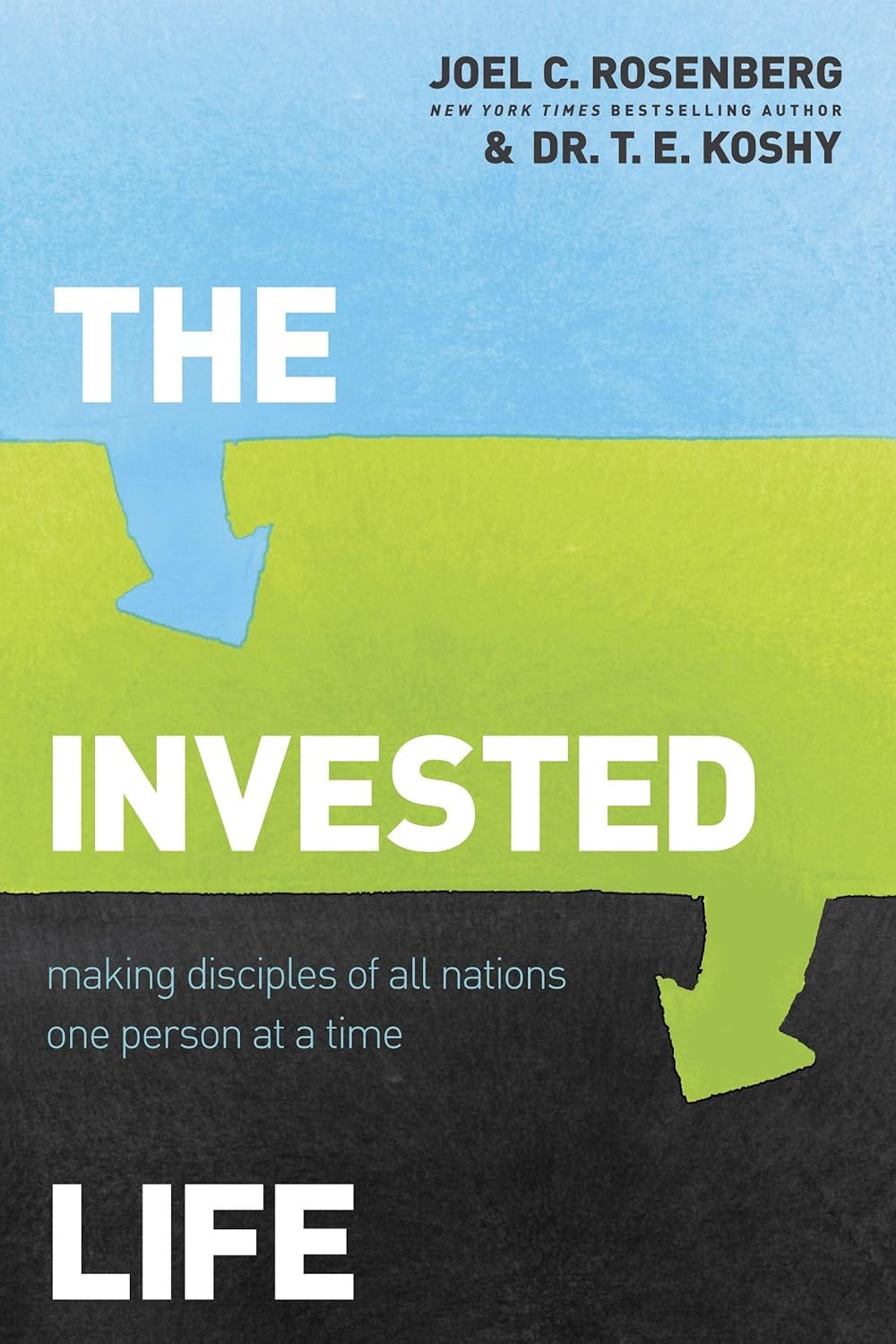Today's featured book paints a mind-blowing picture of what personal discipleship can look like. The Invested Life: Making Disciples of All Nations One Person at a Time was written by Joel Rosenberg, who's much better known for his suspenseful fiction works based on current (and possible future) events. But in my opinion, this book should be the one the church should be reading en masse. Read his first words here:
Every follower of Jesus Christ should be able to answer two simple questions:
First, who is investing in me?
And second, whom am I investing in?
What is Rosenberg getting at here with this talk of investment? He's describing how God pours spiritual and emotional capital into our lives via more mature (usually older and wiser) believers. And his point is that each of us should be discipled this way — and, of course — each of us should be discipling this way.
The book is packed with scriptural and philosophical support for his contention that each one should be teaching one. Yes, you, new believer — there is always someone coming up behind you. And for sure you, Christian who's walked with Jesus a long time. Someone desperately needs you to invest in them!
But this is hardly a new idea. It's just, perhaps, a newer way of thinking about it. As Rosenberg further explains:
God call this process of spiritual investing "making disciples." It's the heart of the Great Commission. It's the vision of a great local church. It's the secret of a healthy, joyful, secure, and significant life.
This idea strikes me as an almost ideal way to look at discipleship, because it's highly personal and highly relational. It's far too easy to slip into church and slip out again without a meaningful connection with anyone. But if you are in an intimate discipleship relationship, you are no longer a lone ranger. And walking with Jesus is not a lone ranger activity.
Rosenberg offers an abundance of practical instruction on how to do this.
These types of relationships should be same sex. Men don't disciple women and women don't disciple men, for reasons which should be abundantly evident.
This type of relationship is a commitment — a relationship that should be as important as your family, because this person IS your family.
It involves meeting regularly (probably at least weekly), formal Bible study, a focus on praying together, and encouragement of additional spiritual disciplines like Bible memory.
Ideally it should be in the discipler's home, if the home environment lends itself to the needed privacy.
The relationship should be like family, eventually! That means celebrating birthdays and holidays, doing fun things together, maybe even a road trip. This should be a fun friendship too!
This leads to Rosenberg's emphasis on biblical hospitality. In this book, along with detailing how to invest in discipleship relationships, he tells a fascinating story about a campus outreach to international students in which he (and his then wife-to-be) were privileged to be involved. A house near the campus was secured for the ministry, which revolved around feeding international students (every night!) as they were loved into Christ's family. The stories around this ministry are extremely inspiring, and will lead you to consider how you might be able to participate in something like that.
But the primary takeaway is a passionate call for one-on-one discipleship across a lifetime. I highly recommend this book as a jumping off point for families and churches who want to build or improve discipleship in their circles.
I will confess that at the age my husband and I find ourselves, it's extremely difficult to find someone to mentor us in this way, and we are still praying for progress in that area. It's much easier to find someone who would like to be discipled, and now that I am a discipler I can say it's one of the most rewarding experiences of my life. My disciple has become a blessing and in fact a daughter to me. I encourage you to read the book and prayerfully consider how it might just change your life — not to mention someone else's.



